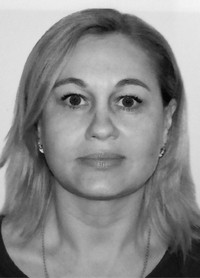MANAGEMENT OF PHYSICAL CULTURE AND HEALTH IMPROVING ACTIVITIES IN THE HIGHER EDUCATION INSTITUTION BASED ON THE PROJECT APPROACH
Keywords:
sports and educational space of the university, sports and recreational activities, project management technology, dispositions, teachers and researchers of the university, employees of the university administration.Abstract
Objective of the study was to identify the attitude of teachers and researchers to the possibilities of implementing project management in the conditions of the sports and educational space of the university.
Methods and structure of the study. The sociological study covered seven universities in the Belgorod, Kursk, Lipetsk regions, consisted of a questionnaire survey of the main actors in the sports and educational space of the university and their in-depth interviewing using the focus group method. The study involved 300 teachers and researchers of the university, 140 employees of the university administration. The purpose of the empirical sociological study was to identify the characteristics of the respondents' dispositions regarding the application of the technology of the project approach.
Results and conclusions. To apply the project management technology in the development of the sports and educational space of the university, it is necessary to overcome a number of barriers by involving participants in long-term pilot projects that do not require fundamental changes in the employee's activities. As the main problems that arise in the course of applying the project approach to managing the development of sports and recreational activities, the following were identified: 1) lack of consistency and consistency in the processes of introducing management methods; 2) insufficient theoretical training of management personnel; 3) insufficient level of formalization of project management processes. Overcoming the barriers to the application of project management technology is possible through the involvement of participants in physical culture and recreation activities in long-term pilot projects that do not require cardinal changes in the employee's activities.
References
Goncharuk Ya.A. K voprosu obosnovaniya fizkulturno-obrazovatelnogo prostranstva vysshej shkoly [On the issue of substantiating the physical culture and educational space of higher education]. Izvestiya Saratovskogo universiteta. Ser. Sociologiya. Politologiya. 2019. No. 1. pp. 32-36.
Ivakhnenko E.N. Otechestvennoe obrazovanie kak sistema i obekt upravleniya [Domestic education as a system and object of management]. Vysshee obrazovanie v Rossii. 2018. No. 8-9. p.18.
Mudunov A.S., Tsakhaeva K.N. Osnovnye problemy vnedreniya tekhnologij proektnogo upravleniya v rossijskuyu praktiku [The main problems of introducing project management technologies into Russian practice]. Fundamentalnye issledovaniya. 2015. No. 11(Part 7). p. 1459.
Panasyuk V.P. Upravlenie obrazovaniem i obrazovatelnymi sistemami: sostoyanie, tendencii, problemy i perspektivy [Management of education and educational systems: state, trends, problems and prospects]. Obrazovanie i nauka. 2017. Vol. 19. No. 2. p. 79.


